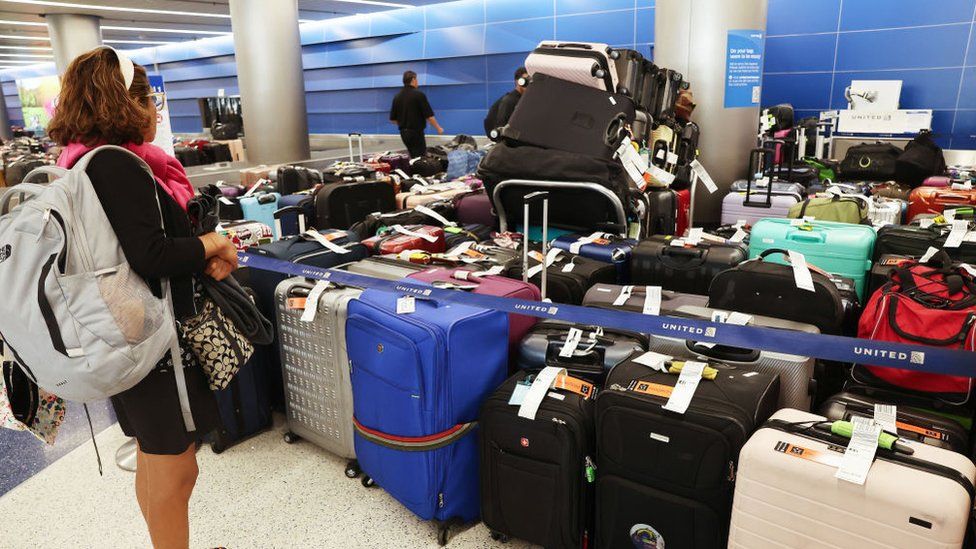The busiest weekend for US air travel since the pandemic may be in jeopardy due to an unorganized effort to upgrade planes' technology.
Before US wireless carriers start boosting their 5G signals on Saturday, airlines have been rushing to retrofit their fleets with new equipment.
However, according to the Federal Aviation Administration, many domestic and foreign carriers will not be able to meet the deadline.
Extreme weather conditions may also cause holiday travelers' plans to change.
This week has been challenging for air travel due to a combination of factors including smoke from Canadian wildfires, severe storms along the east coast of the country, and a heat wave baking the southern states.
Data from the FlightAware website shows that since Monday, over 6,000 flights have been cancelled and over 30,000 have been delayed.
Even though most airlines have since recovered to a large extent, the coming days will see wildfire smoke wafting over congested airspaces like New York and thunderstorms raging through Midwestern states.
The FAA announced on Twitter that Thursday saw more than 52,000 flights, making it the busiest day for American air travel since before the pandemic.
On Friday, the first day of the long Fourth of July weekend, that volume might be surpassed.
The increase in travelers coincides with hundreds of aircraft missing the deadline for landing system updates that were mandated by the government.
Beginning this coming Saturday, AT&T, Verizon, and other wireless network providers will be free to boost the strength of their 5G signals, a change that could improve the performance of the wi-fi in and around airports.
The radio frequency filters that airplanes use to help pilots determine altitude, however, may be affected by the changes, airline industry officials have cautioned. The device, also referred to as a radio altimeter or a radar altimeter, is crucial for a safe landing in bad weather or low visibility.
In response to these worries, the FAA ordered all carriers to replace their fleets' altimeters with new 5G-tolerant models by Saturday. However, it claimed in a statement to the BBC that 34% of international and 15% of domestic aircraft that operate in US airspace respectively do not yet have the new technology installed.
Only aircraft with retrofitted radio altimeters will be able to make low-visibility landings, the Transportation Secretary Pete Buttigieg warned airlines in a letter last week. Additionally, after the deadline, some fleet types will not be able to operate at all in the US without a retrofit. ".
The FAA claims that carriers in Europe, including those in the UK, have "largely finished their work.".
However, trade associations that speak for US airlines lament that problems with the global supply chain have hampered their efforts to comply.
Airlines for America, which represents the majority of the major US carriers, stated that "carriers have repeatedly communicated this reality to the government.".
The A4A member carriers are confident in their ability to uphold the integrity of their schedules despite the approaching deadline because of careful planning. ".
This week, the A4A's four members—American, Alaska, Southwest, and United—all assured US media that they would be able to meet the deadline.
A supplier issue will prevent about 190 of Delta's over 900 aircraft from receiving an upgrade in time, according to the other major carrier.
Some operational impact should be anticipated, the spokesperson added. "What this means for Delta is that some of our aircraft will have more restrictions for operations in inclement weather.".
"Flight safety will never be in doubt, and Delta will abide by all directives and regulations from our regulators," says the airline.







